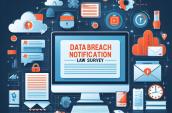When you travel, your risk of exposure to fraud and identity theft may increase. It’s a fact that people tend to let their guard down while on vacation. Identity theft is often a crime of opportunity. Don’t be a vacationer who presents a thief with that opportunity.
Your personal information, credit and debit cards, driver’s license, passport, and other personal information are the criminal’s target. By spending a few minutes planning before you travel, you can help reduce the risk that a thief will ruin your vacation. You can also help avoid unnecessary problems with your financial institution. Here are some tips for an enjoyable vacation:
- Some financial institutions have instituted enhanced fraud protection methods which occasionally may result in disabling your account pending verification of “suspicious” transactions. Unusual travel or expenditures may trigger such problems. Sometimes this can be avoided by notifying your financial institution of your travel plans before you leave.
- Set up your mobile devices with the same security as you would your work or home computer (anti-viral, ant-spyware, anti-malware security software). For mobile devices we do not recommend you put on a "free" app. Do your research as to what the higher rated apps are for your particular phone/tablet.
- Do not use or carry any debit cards (check cards). This reduces your vulnerability to having your checking account emptied while you are on vacation. See PRC Fact Sheet 32: Paper or Plastic: What Have You Got To Lose? for an explanation of why debit cards are a very bad choice for consumers.
- If you plan on using an ATM card during your vacation, use one that does not have debit or check card privileges (one that always requires a PIN and does not contain a Visa or MasterCard logo). You can ask your bank to change an ATM/debit card to one that is "ATM only." It's best to use ATM machines found at banks or credit unions that are in well-lit areas.
- Be sure to examine the ATM machine carefully for signs of tampering. Be on the lookout for anything that looks suspicious. Know how to identify skimming devices on an ATM or point-of-sale terminal. You can read a great guide to skimming and PIN capturing at Group Security Commonwealth Bank of Australia's ATM Card Skimming & PIN Capturing - Customer Awareness Guide
- When dining in a restaurant, try to keep an eye on your credit card when you pay your bill. If the server removes your card from sight, they may be able to create a “clone” by using a portable card skimmer that will copy the information from the card’s magnetic strip.
- Leave your checkbook in a secure locked place at home. Use credit cards or traveler’s checks instead.
- Ask your Post Office or a trusted neighbor to hold your mail for you. Mail that is left in an unlocked mailbox is a goldmine for identity thieves. It also sends a signal to potential burglars that your house is vacant.
- If you are bringing your laptop or mobile device, be very careful when going online using Wi-Fi networks. Most Wi-Fi hotspots are unsecured and unencrypted. You should take additional steps to protect your privacy. For additional information, on using public Wi-Fi hotspots, see PRC Fact Sheet 2: Wireless Communications
- If you are using cyber-cafés, hotel business centers, or other public access Internet facilities, be aware that keyloggers (software that can track your keystrokes) may be tracking you. Public access facilities may use servers that aren’t encrypted. Therefore, never access any sensitive information from a public computer.
- Do not throw away any receipts or documents that contain your personal information in the hotel trash can. Have the hotel shred those documents.
- Always be cautious with the information you share on social networking sites, such as Facebook and Twitter. You wouldn't put a sign on your front door saying "Away on Vacation". When you broadcast your travel plans on a social networking site, you are doing the same thing electronically. This information can then be used by criminals who will know that you will be away from home.
- Conduct a thorough clean-up of your wallet. Remove any unnecessary credit cards, your Social Security card, and other unneeded documents that could compromise your identity if they were lost or stolen while on vacation. If you have a Medicare card, make a photocopy without the last 4 digits of your Social Security number.
- Photocopy or make a list of the remaining contents of your wallet. Keep it in a secure and locked location or with a trusted individual at home whom you can contact in case your wallet is lost or stolen.
- Do not leave your wallet or any documents containing personal information in your hotel room unattended. Hotel rooms are not the most secure places. Many people have access to the room. Use a hotel safe when available.
Taking a few precautions before you travel can help you avoid an unpleasant incident that could ruin your vacation.


